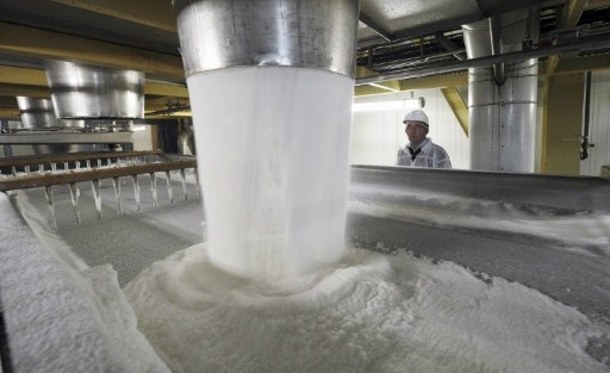NSDC, SINOMACH Seal $1bn Deal To Boost Nigeria’s Sugar Industry

Under the terms of the MoU, SINOMACH will commence the project with the construction of a sugar production plant and a sugarcane plantation with an initial annual capacity of 100,000 metric tonnes. The NSDC, on its part, will facilitate the necessary authorisations, permits, and approvals to ensure the smooth execution of the project.
The executive secretary/CEO of the NSDC, Kamar Bakrin, who spoke at the signing ceremony in Abuja, said the collaboration represents a major leap in Nigeria’s quest for economic self-sufficiency and food security.
“2025 represents a pivotal year for accelerated development in Nigeria,” Bakrin said. “It is a critical period during which we expect to make significant strides in our national journey towards economic self-sufficiency and food security, especially given the fiscal pressure that Nigeria faces.”
Read Also: NAFDAC Alerts Nigerians on Circulation of Counterfeit Aflotin Drugs
He noted that the project would deliver far-reaching benefits to the Nigerian economy, including job creation and rural infrastructure development.
“It goes without saying that a robust sugar industry will deliver several benefits to Nigeria. These include the creation of thousands of sustainable jobs across the value chain. Sugar, by its very nature, leads to extensive rural infrastructure development.
“For Nigeria, it will also result in substantial foreign exchange savings, as it will substitute imports, which currently account for the bulk of the country’s sugar consumption.”
Bakrin added that the sugar sector could become a model for Nigeria’s wider industrialisation strategy.
“We envision a sugar sector, when fully developed, that will serve as a blueprint for Nigeria’s broader industrialisation strategy. And, of course, China, being the world’s leader in industrialisation, can easily relate to this.
“We believe that the sugar industry can serve as a model in this regard, as it gives us an opportunity to adopt a creative and transformative approach to achieving scale and speed—critical elements for Nigeria’s development.
“Specific elements that we believe, if successfully implemented in the sugar sector, can be replicated in other areas of Nigeria’s industrialisation include a strategic approach to sector development, the establishment of enabling policy frameworks, effective aggregation of critical production inputs, acquisition of technical skills and competencies, and innovative financing solutions.”
He described the MoU signing as the beginning of a long-term partnership with transformational potential.
“The signing of this MoU marks the beginning of what we anticipate will evolve into a long-term relationship capable of ultimately delivering as much as one million metric tonnes of locally produced sugar, thereby strengthening our domestic production capacity and reducing import dependence.
“It is indeed a unique model, as it combines both EPC and development financing—an essential requirement for agro-industrial development in the country,” Bakrin said.
On his part, the vice president of SINOMACH, Li Xiao Yu, commended Nigeria’s vigorous implementation of the Nigeria Sugar Master Plan (NSMP) and reaffirmed the company’s commitment to supporting the country’s industrial and agricultural development.
“We deeply admire this vision—it is not only an industrial policy but also a sweet revolution tied to food sovereignty and economic dignity,” Yu said.
“We firmly believe that, through joint efforts, the success of the plantation and sugar mill project will enhance Nigeria’s sugar self-sufficiency, spur economic development in surrounding areas, create substantial employment, modernise the agricultural value chain, and generate long-term and sustainable social benefits.”
He stressed that the partnership goes beyond commercial interest and aligns with broader diplomatic and developmental goals.
“We view our partnership with NSDC not merely as a commercial endeavour, but as a concrete step toward implementing the shared vision of our two Heads of State to enhance agricultural cooperation and promote common development.”
Yu also revealed that SINOMACH is exploring innovative financing structures to support the collaboration.
“We are also actively exploring the implementation of RMB-based financing models to support our collaboration—contributing to the internationalisation of the Chinese currency, diversifying Nigeria’s financing channels, reducing overall costs, and expediting project approvals on the Chinese side. This will ensure stable and efficient funding support.”
He expressed hope that the host state for the project could be transformed into a continental sugar production hub.
“We further hope that the state eventually selected to host the project in Nigeria could be transformed into the ‘Sugar Bowl of West Africa,’” he said.









